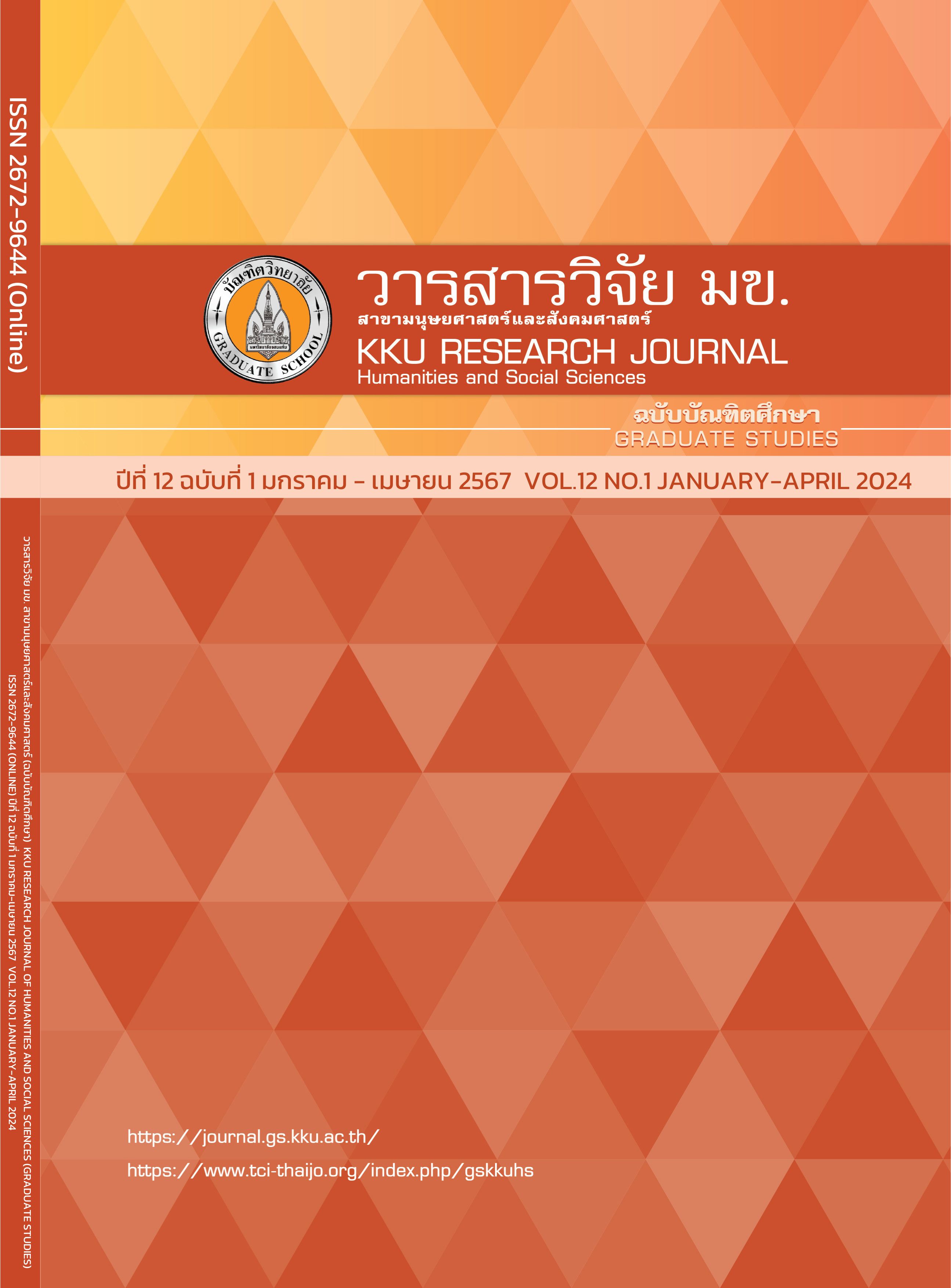รูปแบบการออมที่เหมาะสมเพื่อวัยเกษียณของพนักงานภาครัฐและพนักงานภาคเอกชน ในเขตกรุงเทพมหานคร
คำสำคัญ:
การออมเพื่อวัยเกษียณ, พนักงานภาครัฐ, พนักงานภาคเอกชนบทคัดย่อ
การวิจัยนี้มีวัตถุประสงค์เพื่อศึกษาพฤติกรรมและรูปแบบการออมที่เหมาะสมเพื่อวัยเกษียณของพนักงานภาครัฐ และพนักงานภาคเอกชนในเขตกรุงเทพมหานคร ใช้แบบสอบถามในการเก็บรวบรวมข้อมูล และวิเคราะห์ข้อมูลด้วยสถิติพรรณนา ได้แก่ ค่าความถี่ ค่าร้อยละ ค่าเฉลี่ย และส่วนเบี่ยงเบนมาตรฐาน ร่วมกับใช้แบบจำลองการรอดชีพเพื่อวิเคราะห์รูปแบบการออม ที่เหมาะสม ผลการวิจัยพบว่า พนักงานภาครัฐมีการออมกับสหกรณ์ออมทรัพย์มากที่สุด รองลงมาคือ ธนาคารพาณิชย์และหน่วยบริหารจัดการกองทุนรวม โดยมีสัดส่วนเงินออม ร้อยละ 1 ถึง 5 ของรายได้ต่อเดือน สำหรับรูปแบบการออมที่เหมาะสมมากที่สุดของพนักงานภาครัฐ คือ สหกรณ์ออมทรัพย์ การซื้อกรมธรรม์ประกันชีวิตและการซื้อสกุลเงินดิจิทัล อย่างมีนัยสำคัญทางสถิติส่วนพนักงานภาคเอกชน พบว่า มีการออมกับสหกรณ์ออมทรัพย์ในหน่วยงานมากที่สุด รองลงมาคือ ธนาคารพาณิชย์ และซื้อทองคำ/เครื่องประดับ โดยมีสัดส่วนเงินออม ร้อยละ 1 ถึง 5 รายได้ต่อเดือน สำหรับรูปแบบการออมที่เหมาะสมมากที่สุด คือ การซื้อกองทุนรวม รองลงมาคือ การซื้อกรมธรรม์ประกันชีวิต และการฝากกระแสรายวัน อย่างมีนัยสำคัญทางสถิติ
เอกสารอ้างอิง
Jitramaneeroj B. Preparation for financial planning for retirement of formal workers. CMRI; 2014. Thai.
National Statistical Office. Knowledge Level Tracking Survey and household access to financial services: Thai household savings. Bangkok; 2022.
National Statistical Office. Survey of household economic and social conditions: The economic and social situation of the household. Bangkok; 2021.
Official Statistics Registration System [Internet] 2022. Available from: https://stat.bora.dopa.go.th
Department of older persons. Elderly statistics [Internet] 2022. [Updated 2023 Sep 5]. Available from https://www.dop.go.th/th/know/side/1/1/2388
Kasemsub W. Is Thailand ready? with the step towards a completely aging society [Internet] 2017. [Updated 2022 Jun 28; cited 2021 Jul 25]. Available from https://op.mahidol.ac.th/ga/posttoday-22-2/
National Higher Education, Science, Research and Innovation Policy Council. How must Thai elderly adjust? To be ready for the ultimate aging society [Internet] 2021. [Updated 2021 Arp 13]. Available from: https://www.nxpo.or.th/th/8078/
Khunchuen C. Personal Financial Planning in Bangkok [thesis]. Bangkok: Ramkhamhaeng University; 2018. Thai.
Kerdkam P. Personal savings behavior of employees of Advance Info Service Company Limited. [IS]. Bangkok: Silpakorn University; 2010. Thai.
Whongphiriyapong P. Saving and investment on private employees [MSc thesis]. Bangkok: Srinakharinwirot University; 2008. Thai
Taro Yamane. (1973). Statistics: an introductory analysis. New York: New York: Harper & Row
Pisanbut S. Business Research. 2nd ed. Bangkok: Asia Press Publishing; 2012.
Cox DR. Rogation model and life table. Cox, models and life table. J. Roy. Statistical Society. Series B. 1972; 34: 187-220.
ดาวน์โหลด
เผยแพร่แล้ว
รูปแบบการอ้างอิง
ฉบับ
ประเภทบทความ
สัญญาอนุญาต

อนุญาตภายใต้เงื่อนไข Creative Commons Attribution-NonCommercial-NoDerivatives 4.0 International License.




